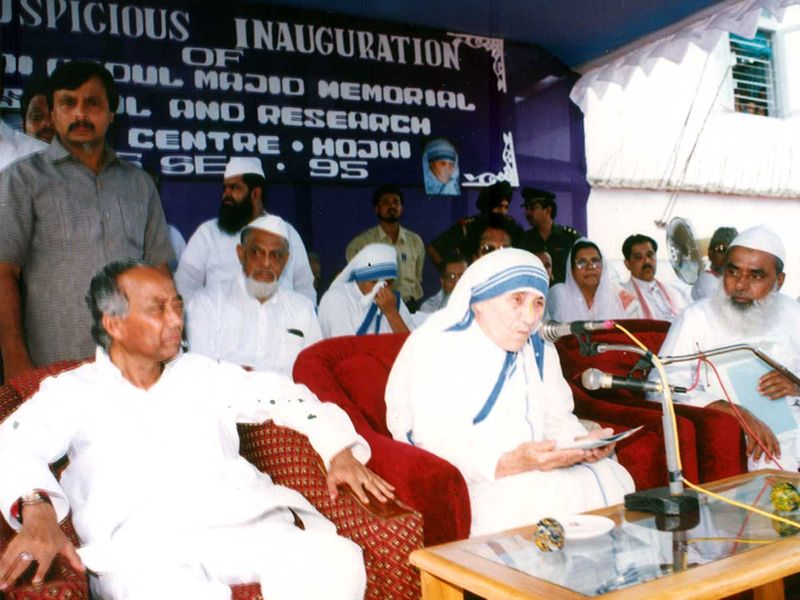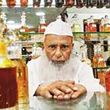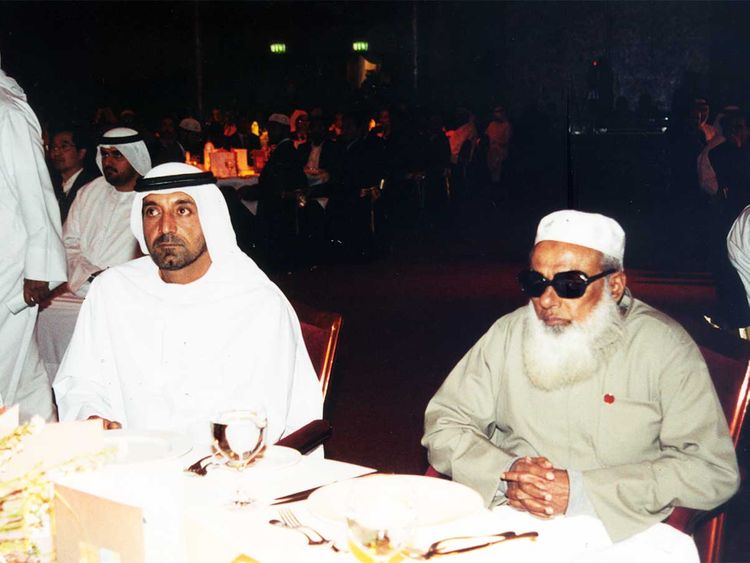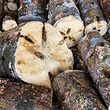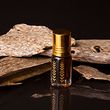Dubai: From a farmer in India to a perfumer in the UAE, the journey of Haji Ajmal Ali has been a remarkable success story. The late Haji Ajmal Ali started his perfume business with Rs500 (Dh25) in India before reaching the UAE in the early 1960’s. Today the family-owned business is a multi-million dollar corporate entity. His labour of love, Ajmal Perfumes, is standing tall as a testimonial to his perseverance and business acumen.
This year, Ajmal Perfumes celebrates 70 years of its operations.
Turn back the clock
Ajmal Perfumes was founded in the early 1950s by the late Haji Ajmal Ali (left) in the northeastern Indian state of Assam. It started as a small business with a capital of Rs500 (Dh25 at today’s rate) in his home state before moving to India’s commercial capital Mumbai. Their first Dubai store was set up in 1976. The growth was gradual and steady. They have more than 280 stores across the region now and boast an export network covering 45 countries around the world.
Today, Ajmal Perfumes is run by the second and third generation of Ajmals; each playing a key role in the brand’s development and growth. From a modest trading house, the company has now became a multi-million dollar corporate entity.
“Thanks to the vision of my grandfather, the late Haji Ajmal Ali and his unstinting dedication to the craft of perfumery, we have grown in the business,” said Abdulla Ajmal, deputy CEO of the perfumery and the eldest of the third generation of Ajmals.
On a path set by the elders
“I’ll give you an example of how the elders in the family set goals for us. They would tell us: We have taken you from a bullock-cart to a BMW car. Now it is your turn to take us from the BMW to a Boeing plane. We hope to pass this to our children as well,” said Abdullah, whose family hails from Assam.
Abdullah’s father, Mohammed Amiruddin Ajmal, 73, CEO, Ajmal Perfumes, who is the oldest of the second generation of Ajmals, said: “Oud was in our backyard in India. That is how our business started — with oud and its various oils. My father, the late Haji Ajmal, then moved to Bombay (now Mumbai) to blend oils in a tiny apartment. Back in the 1950s traders from the Gulf would come to India for spices, textiles and perfumes. My father started interacting with them and introduced our home-grown oud and attar. One day he decided to make a trip to this part of the world and landed in Sharjah in 1961. During the trip he met traders and some visionary leaders.

“My father was very close to some UAE traders. The business in the Gulf at that time was focused on pearls. It took six years for us to establish ourselves. We did not come here loaded with money. We had to convince people of what we were doing.
“We were operating through dealers. When the Gulf War started, collecting payments became a challenge. Some dealers used the invasion of Kuwait as an excuse to delay payment. That is when we decided to go into retail operations,” Mohammed said.
Their first store was set up in Dubai in 1976. The rest, like they say, is history.
“We opened our 100th store in 2006 in Umm Al Quwain. Today we have more 280 stores across the region and we export to about 45 countries around the world. Now the third generation of Ajmals has entered the business. I feel so proud,” Mohammed said.
The Ajmal family used to live in Murshid Bazaar in Dubai’s Deira area. “The building was called the Commercial Bank of Dubai building. The bank has shifted its premises, but the building remains,” he reminisced. Mohammed and his children now live in a sprawling villa in Jumeirah, and will soon move to Meydan.
Abdullah Ajmal’s cousin Maryam is the head of perfumery division, and his younger brother Asad Ajmal heads design, development and planning sections.
Maryam is said to have a nose for perfumes like her father, the late Nazir Ajmal.
“My father was a visionary. Unfortunately he died when I was young. But he taught me well. He was a risk-taker, but he also taught me to be patient. The values he instilled in me stay with me even now,” she said.
Abdullah elaborated on how Maryam has followed in her father’s footsteps. “My uncle Nazir was a genius perfume-maker. He would wake up in the middle of the night with new perfume formulas in his head. Maryam has the same nose for perfume. She has developed it further as she is very detail-oriented and is a stickler for organising things.”
Asad dabbled in other jobs before entering the family business. “I guess home is where the heart is,” he says.
The story of Oud: from the trees to the bottle
The Agarwood tree falls under the Thymelaeaceae family. The trees that Ajmal cultivate fall under the sub species: Aquilaria Malaccensis, says Maryam. These sub species are native to North East India and Bangladesh, while other species can also be found in the Far East and in Sri Lanka.
In Agarwood trees, the resin (or oil) known as oud does not form naturally as it would in other trees, such as in the sandalwood or Cedarwood trees. Instead, the tree must face external stresses, such as damage from storms, or the burrowing of a specific worm, for it to sense danger, and start producing the oud oil or resin as a protective mechanism from external forces. As a result, oud formation is rather sporadic and is not localised in the core. Also, not all Agarwood trees produce this resin, and that is why it is such a precious resource. The tree must also reach a minimum age of 25 years of maturity before we can harvest an oud bearing tree.
Once an oud bearing tree has been identified and harvested, skilled workers separate the resin bearing wood from the remaining ‘white wood’ so that only the dark, old rich wood is left behind. They use various tools for this task. After that, the wood chips are steam distilled for anything between 30 - 90 days (depending on the origin/species of the Agarwood chips). After distillation, the precious oud Oil - or black Gold - is separated from the condensed water, and is finally bottled to be either used in the formulations, or sold in shops.
Alternatively, the oud chips are also directly burned to make the room, clothes, or even our body parts (hair, for example) fragrant.
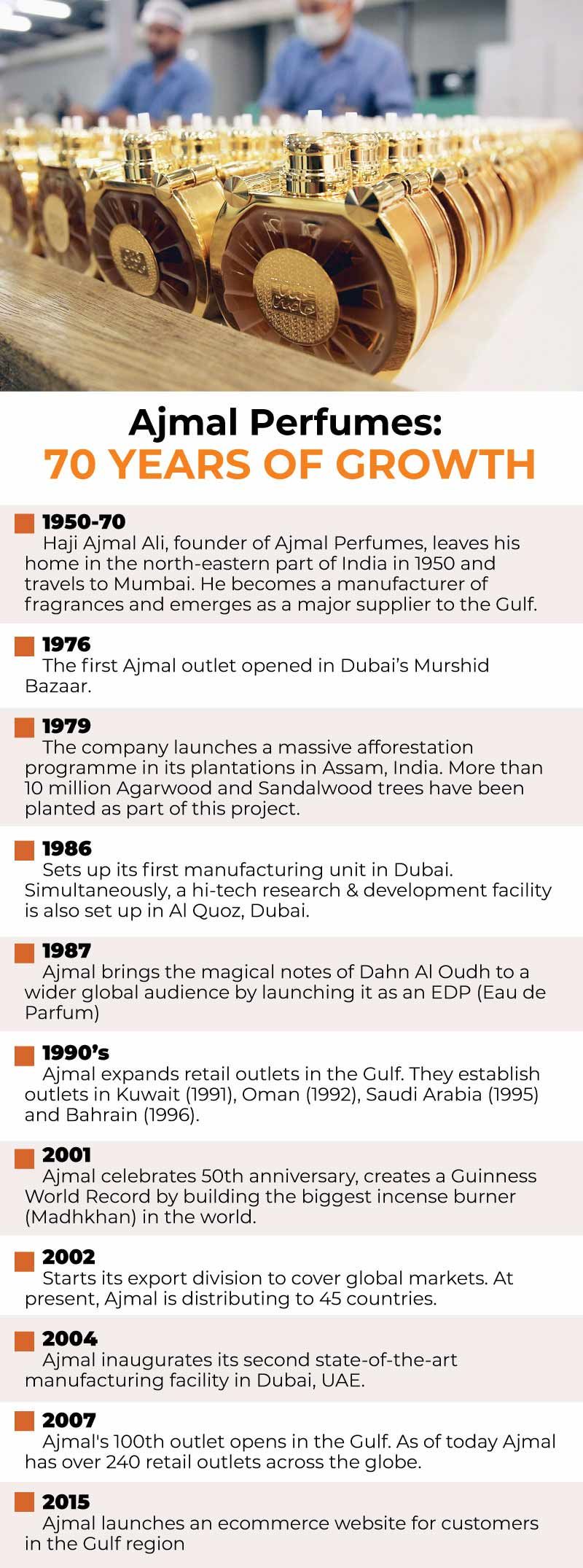
Women power in family
Abdullah said the women in the family are the backbone of the enterprise. “Women in our family have always been strong. We would not be where we are now if it was not for our grandmother. She had a strong personality and pushed her children to leave India and work in the Gulf,” Abdullah said.
“My mother was a very strong woman as well. I am who I am because of her. She was highly educated and ensured all of us went to good schools and colleges.”
Mohammed says a blend of the East and the West forged their outlook and spawned success for the company in the UAE.
“Back in India, traditional attars and oud were popular. But people in the Gulf were influenced by western fragrances. And so we created fusions,” he said.
“The new products we created were the results of this fusion of raw materials and fragrances from East and West. The second and third generation of Ajmals have followed the principle laid down by my father,” Abdullah said.
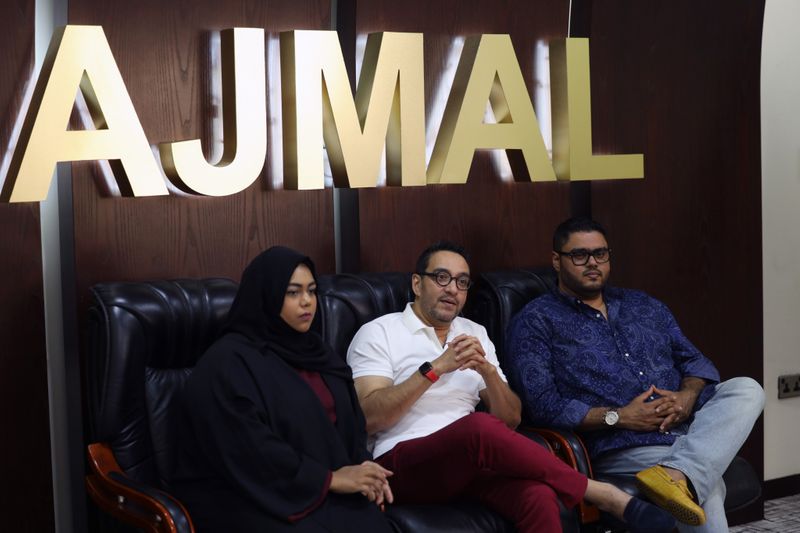
“We have always counted on innovation, research and development to keep us ahead of the game. My father started as a single commodity trader. Today, we are an end-to-end fragrance house. We have raw material distillations, own plantations and supply raw materials to the industry. We are completely vertically integrated,” Abdullah said.
“Our expertise in the seventies and eighties were typically dark Arabic fragrances. Today we have the expertise to create the lightest of oriental or western fragrances and dark Arabesque oriental fragrances. We work with some of the best master perfumers of the world for oud tours to promote fusions.”
Abdulla said the pandemic has put an “interesting” spin on the perfume business. “[Sale of] home fragrances have gone up considerably. Personal fragrance sale too have gone up considerably. Fragrances make people feel nice. It gives them a touch of the outdoor. There is a huge shift in the way how fragrances play a role in the lives of people. We believe that the future is bright. It will take a little bit of time.”
His message for young entrepreneurs in the UAE: “Hold onto your roots. Consolidate your strength and be true to your customers.”
